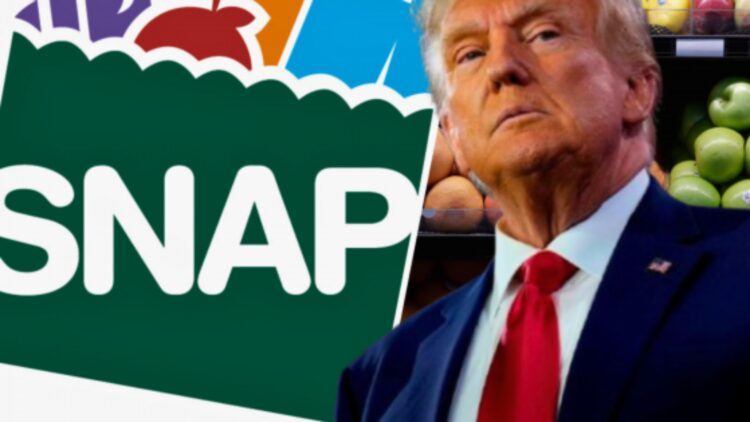World
Trump’s New Law Cuts Food Stamp Benefits Starting November 2025

The United States will witness significant changes to the Supplemental Nutrition Assistance Program (SNAP) as new regulations come into effect on November 1, 2025. The law, known as the One Big Beautiful Bill Act (OBBA), signed by Donald Trump, imposes stricter eligibility requirements that could drastically reduce or eliminate food stamp benefits for millions of Americans.
The U.S. Department of Agriculture (USDA) announced that under the new guidelines, individuals classified as Able-Bodied Adults Without Dependents (ABAWD) must either fulfill specific eligibility criteria or work at least 80 hours per month. This includes participation in the SNAP Employment and Training (E&T) program or other local employment initiatives. Failure to meet these conditions could result in disqualification from receiving benefits.
New Eligibility Criteria and Potential Impact
The updated eligibility requirements are considerably more stringent. Starting in November, applicants must be:
- 65 years or older (previously 59)
- A parent or guardian of a child under 14 years old (previously under 18)
- Pregnant or physically or mentally unable to work
- Members of native communities under new OBBA exceptions
Those who do not fit these categories will be required to meet the new work mandate. According to the Congressional Budget Office (CBO), this legislation is projected to reduce the federal deficit by $309 billion. However, it raises concerns about food security, with an estimated 2.4 million people facing potential loss of benefits.
CNBC has characterized this legislative change as “the largest cut in the history of the SNAP program.” Data from the Urban Institute indicates that affected individuals could see a reduction in benefits ranging from $72 to $231 monthly.
State-Level Implications and Reactions
This shift in SNAP funding will not only impact beneficiaries but also place additional pressure on state budgets. Traditionally funded entirely by federal resources, states will now be responsible for covering up to 25% of the program’s costs. This change necessitates significant budget restructuring, with states like Oregon anticipating that approximately 42% of local SNAP beneficiaries may lose their aid.
While the Trump administration argues that the new measures aim to reduce dependence on federal assistance, many critics highlight the human cost of these cuts. Detractors emphasize that while the goal might be fiscal responsibility, the resulting hardships could exacerbate food insecurity for vulnerable populations.
As states prepare for the implementation of OBBA, officials and advocates are left to navigate the complexities of these new requirements and their broader implications for community welfare. The debate surrounding the balance between fiscal policy and social support continues as stakeholders assess the long-term effects of these changes.
-

 Sports1 week ago
Sports1 week agoSteve Kerr Supports Jonathan Kuminga After Ejection in Preseason Game
-

 Politics1 week ago
Politics1 week agoDallin H. Oaks Assumes Leadership of Latter-day Saints Church
-

 Lifestyle1 week ago
Lifestyle1 week agoDua Lipa Celebrates Passing GCSE Spanish During World Tour
-

 Business1 week ago
Business1 week agoTyler Technologies Set to Reveal Q3 2025 Earnings on October 22
-

 Entertainment1 week ago
Entertainment1 week agoZoe Saldana Advocates for James Cameron’s Avatar Documentary
-

 Science1 week ago
Science1 week agoChicago’s Viral ‘Rat Hole’ Likely Created by Squirrel, Study Reveals
-

 Lifestyle1 week ago
Lifestyle1 week agoKelsea Ballerini Launches ‘Burn the Baggage’ Candle with Ranger Station
-

 Health1 week ago
Health1 week agoRichard Feldman Urges Ban on Menthol in Cigarettes and Vapes
-

 Health1 week ago
Health1 week agoCommunity Unites for Seventh Annual Mental Health Awareness Walk
-

 World1 week ago
World1 week agoD’Angelo, Iconic R&B Singer, Dies at 51 After Cancer Battle
-

 Business1 week ago
Business1 week agoMega Millions Jackpot Reaches $600 Million Ahead of Drawings
-

 Business1 week ago
Business1 week agoMLB Qualifying Offer Jumps to $22.02 Million for 2024









